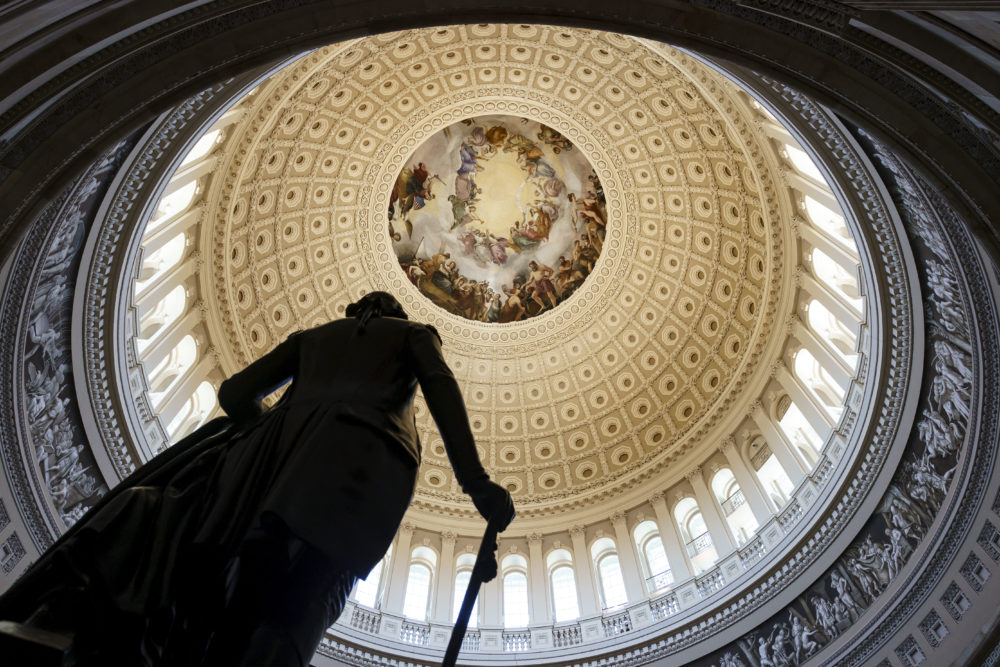UPDATE: The Supporting Foster Youth and Families through the Pandemic Act expired Sept. 30 without an extension.
A pandemic relief bill providing aid to transitional age foster youth will expire today unless Congress makes an 11th-hour decision to extend it, but as time runs out that appears increasingly unlikely.
The results of failing to act, advocates warn, will be an estimated 20,000 young adults kicked out of the foster care system and cut off from aid that they have relied on to weather the financial challenges caused by the pandemic.
The Supporting Foster Youth and Families through the Pandemic Act, legislation passed in December 2020, placed a temporary moratorium on aging out of the system, allowing foster youth up to age 27 to access a slew of financial aid, resources, case management, housing and other services, while bolstering existing aid to youth and their families.
Though it can vary state to state, the federal rule is that foster youth age out of the system at 21, meaning they no longer get access to resources like transitional housing services, monthly financial aid and case management.
The new law not only expanded eligibility, it added benefits and expedited access.
“The moratorium really was a stabilizing force for a lot of young people who would have aged out during the pandemic and would have had a really challenging time with securing housing and just making ends meet,” said Jennifer Pokempner, policy director at Youth Law Center.
The pandemic has hit foster youth exiting the system especially hard, leading to an increase in unemployment, food insecurity and housing instability, according to advocates, who also point out that many of these young people don’t have a family to fall back on when finances go south.
For Justin Hayden, a 21-year-old set to age out of Indiana’s foster care system this week if the moratorium isn’t extended, the pandemic relief gave him funds to continue his college education and pay $3,900 for repairs to his new used car, which he bought last year and turned out to be a “lemon.”
“I bought the car in November and was not able to get it fully repaired until March, and I would not have been able to do that without the transportation fund in this bill,” he said. “I’m not sure where I would be or how much more I’d be struggling if I did not have access to this pandemic relief.”
Although the bill was signed into law toward the end of last year, states needed time to build up systems to expand eligibility and distribute aid. In some places, funds didn’t begin flowing to eligible youth until this past summer. Now, just months later, the legislation is set to end.
“It’s just like a gut punch,” said Tony Parsons, who spent time in the child welfare system and works as a foster youth advocate with Youth Villages. “We worked so hard to get this legislation passed and now, just when states are hitting their stride and getting this relief out to foster youth, the government says, ‘Oh, sorry, you can’t do it anymore.'”
A coalition of advocates, including the Annie E. Casey Foundation and Youth Law Center, has called on Congress to pass new legislation — H.R.5167 — that would extend the foster youth protections for another year. The bill has bipartisan support and was introduced by Congressional Caucus on Foster Youth Co-Chairs, Representatives Karen Bass (D-CA), Don Bacon (R-NE), Jim Langevin (D-RI), Brenda Lawrence (D-MI) and Markwayne Mullin (R-OK).
“It makes me want to cry,” Parsons said.
The bills’ backers had hoped to add the foster care protections extension into the congressional deal being worked out to prevent the government from shutting down Friday, but those talks have stalled.
As lawmakers on Capitol Hill struggle to pass legislation, foster youth and advocates anxiously wait to see if the provision can squeak through before the aid expires. If that fails, supporters of the extension will try to pass it in the weeks to come, but advocates say any hiccup in aid could be detrimental to foster youth who are counting on it.
In the meantime, states can act immediately to raise the age foster youth have to exit the system. California, for example, has extended a moratorium on aging out of the system through December.
Parsons, for his part, is haunted by the unknown number of eligible foster youth who didn’t get the chance to access the emergency pandemic resources.
“It makes me want to cry,” Parsons said. “But it also makes me more determined than ever to keep trying.”


























